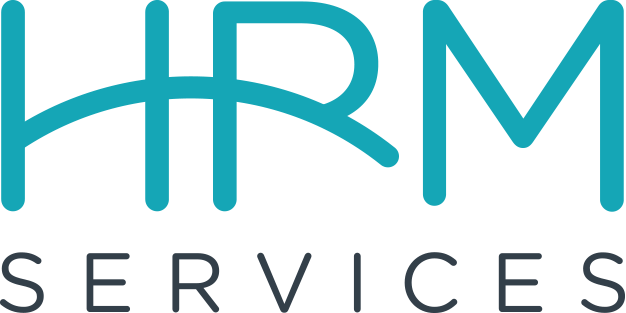
Welcome to the April edition of HR Hot Topics!
This month, I want to give you a few updates on recent bills that were signed into law here in the state of Michigan. I want to draw your attention to something that is supposedly coming at the federal level. And if it does come to fruition, it will affect every single one of us. Then I have a few exciting announcements I want to share as well!
So let’s jump right in at the state level. At the tail end of March, Governor Whitmer signed two bills into law. The topic of these two bills is not new – we’ve heard this argument go back and forth over the years.
The first is that she has officially repealed Right to Work. Right to Work was a bill that was signed into law under the Snyder administration. Under Right to Work, if an employee went to work for an employer that was represented by a union, it was the employee’s choice whether or not they wanted to join that union and pay union dues. With the repeal of Right to Work, that is no longer going to be optional. So we’re going back to the days of the Pre-Snyder Administration, where if you join a place of work that’s represented by a union, than you joining that union and paying union membership dues is no longer optional. It becomes a condition of employment.
The second bill that Governor Whitmer signed into law was to reinstate prevailing wage. So the prevailing wage rules say that for state construction projects, a union rate wage needs to be paid, whether or not the construction project is being completed by a union. Both of these pieces of legislation are very pro-union – not a big surprise. We have a Democratic Governor and a democratically controlled House and Senate for the first time in almost 40 years. So you can imagine they have a whole laundry list of things they would like to see done or undone depending on what the issue may be. And they are very quickly ticking through that list, so more to come.
We have a few other things we’re watching at the state level. I’m not going to bring those to you today because I’m not sure which ones are really going to get legs or not. Some of them are quite scary if you are an employer, especially a small employer. So I’m just going to hold on that for now, and if any of them get real legs, you can be sure that I will bring that to you here first.
Now on the federal scene, the thing that we’ve been hearing from the Department of Labor this time, for quite some time now, we haven’t actually seen it come to light, but we’re getting closer and closer to a date that they had thrown out in their regulatory agenda. And that is proposed changes to the overtime rules. So the Fair Labor Standards Act governs overtime. Who is eligible for overtime, whether an employee is exempt from overtime or non-exempt, meaning that they should be paid overtime the rate of overtime pay. And specifically on the exemption side, how much do you have to earn in order to be considered an exempt employee? And what does your job have to consist of on the duty side in order to be considered an exempt employee? And so the DOL has been signaling for quite some time now that they are looking to make changes to both that earning threshold to be considered exempt.
In colloquial terms, we call that salaried employees, and also hinting that they may be looking at the duties test as well. So we first heard about this last spring. Here we are April of 2023, and we’ve seen nothing published yet. The regulatory agenda for this year from the Department of Labor signaled that we would be seeing this proposed rule in May. We haven’t seen it yet. There’s a lot of speculation around what that earning threshold may be increased to. There seems to be a lot of thought that it will certainly be increased. One, because the rising cost of goods and inflation. And two, the rising cost of minimum wage and how different current minimum wages are in comparison to the DOL earning threshold. Right now, in order to be considered an exempt employee or salaried employee, you have to be earning at least $684 a week, which equates to just north of $35,500 a year.
For some of you that were around during the Obama Administration in 2016, there was a push by that administration to increase the earning threshold higher than what it is now. At that time, they were looking to increase the threshold to $47,700. That was in 2016, when inflation was not nearly as high as what it is now. And minimum wage was also not nearly as high as what it is now. So there’s a lot of speculation around if an increase happens, how much of an increase might we be looking at? From a lot of the things I’ve read, they’re guessing somewhere between 10 and $15,000 a year. So if the current earning threshold for a salaried employee is $35,500, they’re expecting this could be anywhere from 40 to $50,000 that somebody has to earn at a minimum in order to be considered salary.
And then recall that the earning threshold’s just one piece to the puzzle. You also have to meet the duties requirements in order to be considered exempt from overtime. There are all sorts of exemption classifications or categories on the duties side. There’s an executive exemption, administrative, outside sales, and the list goes on and on. I’ll include some links in the email message to give you more information on that. But the DOL has signaled that they may want to play around a bit with some of those duties tests.
If you have any dealings in California, you are already aware of this. In California, it’s not enough that you have some of the duties that match what’s required on the duties test, but in California it says you also have to be performing those duties at least 50% of the time each work week. So they really get granular in California. California has its own HR certification, like if you want to practice HR in California, you have a California specific HR designation. It’s like a nation onto itself. So there’s some signaling that the DOL may be looking at how California handles this and maybe taking a page from their book. We’re unsure.
There was also a question about the outside sales exemption. Right now, outside sales means you are physically out of the office conducting the sale. Inbound sales where it’s happening over the phone doesn’t count. So there was some question about whether the DOL would consider virtual sales as outside sales, at least in this day and age, we’re unsure whether or not the DOL will expand that definition. So a lot of unknowns.
I think the common theme here is that we do expect to see something from the DOL this year. Whether we’ll actually see it in May or not is anyone’s guess, but when we see it, I wouldn’t be surprised if there’s an increase to the minimum earning threshold for your salaried staff and potentially some tweaking of those duties requirements, making it more difficult for individuals to be exempt from overtime. So that’s a wait and see, but I wanted to put it on your radar because it does affect the way in which you operate and certainly affects your finances. So when we hear from the DOL, you can be sure you will hear from me.
Enough on the regulatory side and onto the exciting announcements. First things first, I spent the morning with two very esteemed guests filming our first deep dive, HRM Sessions video. So, as you’ll recall, we had committed to releasing four to six deep dive videos this year on topics that are of most interest to you. We’ve just filmed the first one. It’s going to be coming out probably in May. That’s our goal. So we’ll wrap up editing this month and we hope to have it delivered to you in May. Remember, that is a free video to all HR Hot Topics subscribers. So if you’re watching this on YouTube and you’re not on our email list, you’ll want to get on there so that you can get access to this video. And the topic of the very first one, and this is sort of on the heels of recent community events here in Michigan, is leading through trauma in the workplace. This is a can’t miss.
Folks, this hits home for all of us. And I think as a leader if you have not experienced traumatic events yet in the workplace, unfortunately it is only a matter of time. And you don’t want to wait until you are in the emotional throes of trauma to realize you don’t know what to do, right? And you’re going to have a team of people looking to you to help guide and support them, and you’re suffering through it yourself too. So what are the resources? What are the best practices? How can you put a plan together proactively in the event a circumstance hits you. So I’m really excited about that one. We’ve got two excellent guests that are going to share perspectives on that. So that’s a can’t miss!
And the second exciting announcement is that we are doing a free one hour webinar on the six biggest mistakes that new leaders make and how to avoid them. I know many of you have had strategies internally where you’re trying to promote from within for all sorts of very good reasons. And when we can’t promote from within and we have to hire for a leadership role, sometimes the candidate pool that we’re hiring from doesn’t bring a lot of experience with them. That would be a promotion for that individual. So we have people in spots that are requiring them to lead either lead projects, lead people, lead disciplines of work, and they have very little actual experience doing that. And unfortunately make many of the same mistakes. And on our end, as consultants and trainers, we we see those over and over again.
And so we thought we’d put together a webinar on the six biggest ones and then let’s tell people how to avoid them on the front end. And it’s a free webinar, so keep an eye out for that. We’ve got some kind of fast action incentives as well. We always want to give you more than what you think you even need. So if it’s of value, year after year, we’re your people. As always, if you have any questions or comments, you can reach me directly at jodischafer@workwithhrm.com.

